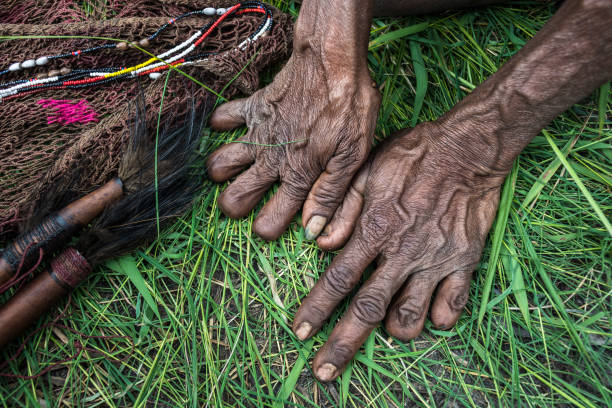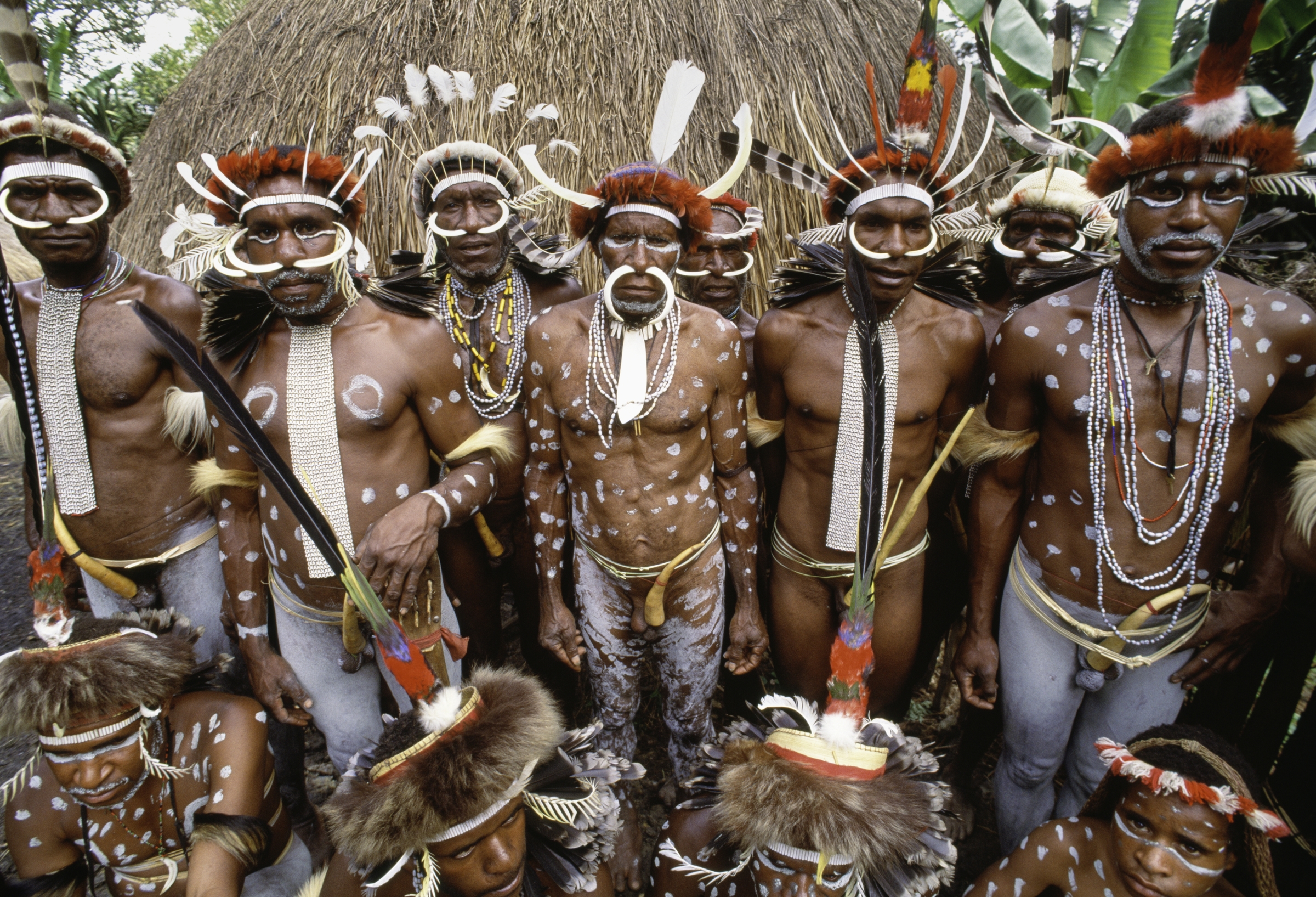The Dani people, also spelt Ndani, are found deep in the remote highlands of Western New Guinea in Indonesia. They are one of the most populous tribes in the highlands and are found spread out through the highlands.
American philanthropist Richard Archbold unwittingly discovered the tribe during a 1938 expedition.
The tribe is also particularly infamous for its unique practice of self-mutilation and its liberal view of clothing.
One of their customs is the wearing of an unusual piece of underwear (the Koteka), worn by males, which is commonly referred to as a penis sheath, and women in the tribe have been known to cut off the end of their own fingers to mark the loss of a relative.

Relatives are expected to cut off the top part of their fingers after the passing of a loved one, as a sign of respect and grieving.
The practice is meant to symbolise the pain one feels after losing a loved one with many people in the tribe often amputating multiple fingers during their lifetime.
At the time of marriage, a man must cut off a finger from his right hand to present as a dowry to the bride. If he wants to divorce his wife, the top part of two fingers from the left hand must be cut off. But should the man die, his wife must cut off the top part of all ten fingers as a sign of her fidelity to him and a promise to marry no other man after him.
Be it marriage, divorce or death, hands will always be amputated.


You have made some decent points there. I looked on the net for more information about the issue and found most people will go along with your views on this website.
We give nothing but the very best, Augustine.